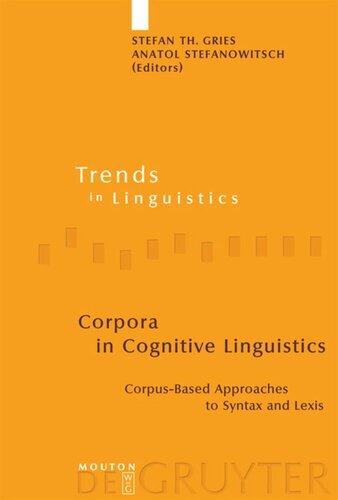

Most ebook files are in PDF format, so you can easily read them using various software such as Foxit Reader or directly on the Google Chrome browser.
Some ebook files are released by publishers in other formats such as .awz, .mobi, .epub, .fb2, etc. You may need to install specific software to read these formats on mobile/PC, such as Calibre.
Please read the tutorial at this link: https://ebookbell.com/faq
We offer FREE conversion to the popular formats you request; however, this may take some time. Therefore, right after payment, please email us, and we will try to provide the service as quickly as possible.
For some exceptional file formats or broken links (if any), please refrain from opening any disputes. Instead, email us first, and we will try to assist within a maximum of 6 hours.
EbookBell Team

5.0
90 reviewsCognitive Linguistics, the branch of linguistics that tries to "make one's account of human language accord with what is generally known about the mind and the brain," has become one of the most flourishing fields of contemporary linguistics. The chapters address many classic topics of Cognitive Linguistics. These topics include studies on the semantics of specific words (including polysemy and synonymy) as well as semantic characteristics of particular syntactic patterns / constructions (including constructional synonymy and the schematicity of constructions), the analysis of causatives, transitivity, and image-schematic aspects of posture verbs.
The key characteristic of this volume is that all papers adopt the methodological perspective of Corpus Linguistics, the rapidly evolving branch of linguistics based on the computerized analysis of language used in authentic settings. Thus, the contributions do not only all provide various new insights in their respective fields, they also introduce new data as well as new corpus-based and quantitative methods of analysis. On the basis of their findings, the authors discuss both theoretical implications going well beyond the singular topics of the studies and show how the discipline of Cognitive Linguistics can benefit from the rigorous analysis of naturally-occurring language. The languages which are investigated are English, German, Dutch, and Russian, and the data come from a variety of different corpora. As such, the present volume will be of interest to a wide range of scholars with many different foci and interests and should pave the way for further integration of usage-based techniques of analysis within this exciting paradigm.